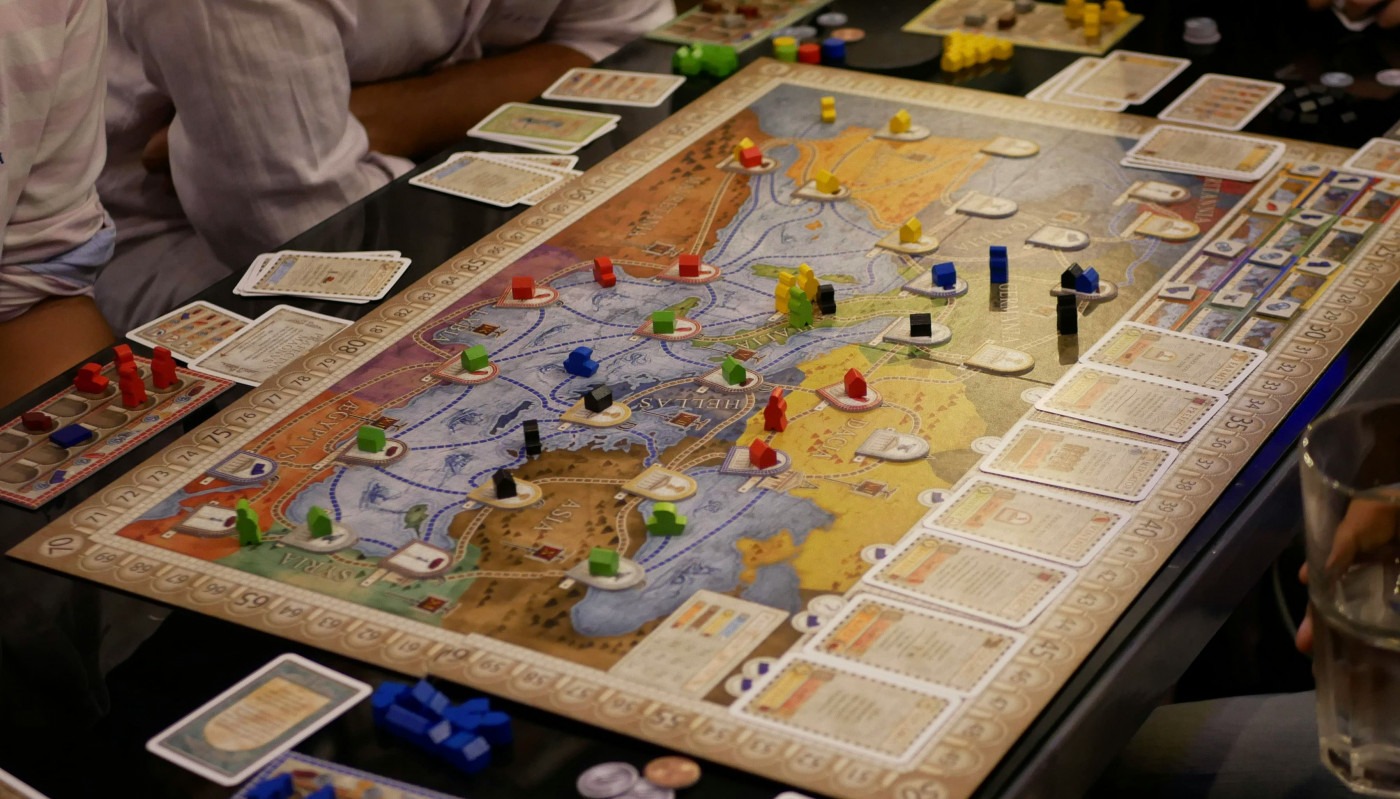Taking a chance on The Chance & Counters Podcast
Yogscast have a long history with podcasts, dating back to 2009 with The Yogpod. Now, they have an entire podcast network – Pickaxe. As one might expect, a lot of the podcasts on this network revolve around games. The Chance & Counters Podcast is no exception, being hosted by founding staff members of the titular board game café. Each week, the team are joined by a guest (often from the Yogscast) to decide, through deliberative democracy, the optimal board game for a particular hypothetical scenario. I listened to episode five, ‘Lost pt II’, as it featured one of the only Yogscast cast members I am familiar with: Lewis Brindley. In this episode, the scenario is that they are stranded on a desert island and can only take a single board game with them.
This podcast represented more of the spectrum of board games that exist, honing in on far less imposing niches
Given the absurdity of the scenarios, I was surprised by how seriously the podcast took their task, and how much this desert island framework ended up influencing the discussion. The group immediately decided they needed a game with high replayability – it was the only one they’ll have on this island for however long they were there. They also wanted one that wouldn’t cause arguments. After all, there were only a small handful of people on this island – they want to get along for as long as possible. This lead to many of the suggested games being co-operative rather than competitive, which felt like a nice subversion of my expectations for the scope of games this show would recommend. I had felt like the more most people get into board games, the more they trend towards sprawling 8-hour long competitive war strategy games. But this podcast represented more of the spectrum of board games that exist, honing in on far less imposing niches.
Be sure to be ready to make notes of anything that catches your attention
Even though most listeners will never find themselves stranded on a desert island, they may well want game recommendations with good replay value and few arguments. I think of myself as a big fan of board games, so listening to this podcast was incredibly humbling. Sure I may prefer Betrayal at the House on the Hill to Monopoly, but I had never even heard of a single one of the games they pitched. This is great because it means the show is bound to introduce new board games to people, which is what it’s trying to do really, but if you’re anything like me it also means you may not remember a single thing they say. If you do listen, be sure to be ready to make notes if anything catches your attention.
This makes the podcast a fun and easy listen despite the unrelenting density of new knowledge being provided
This was the case for me with one game they discussed – Spirit Island. They really sold this game to me by using a term I’d never heard before for a concept I was tragically familiar with – quarterbacking. This refers to the tendency for people familiar with a collaborative board game to sort of inadvertently take over when teaching it to new people. The people who have never played before won’t really know the optimal move, and because it’s co-operative the player who had played before can just tell them what to do. This leads to the new players not really contributing and then coming away feeling like they didn’t really play the game, they sort of just watched, which means they tend not to want to play it again. Games like Pandemic suffer greatly from this, in my experience. Spirit Island, however, the podcasters describe as the ultimate anti-quarterbacking game, explaining that you can’t really take other players turns for them in the way you can in most co-operative board games. I have yet to play this game for myself, but the concept is intriguing and I certainly plan to check it out.
If I am ever in need of a board game recommendation, I will revisit this podcast. However, in my experience these already come to me at a rate my bank account and schedule have no hope of keeping up with. So while I enjoyed the episode I listened to, I sadly have no motivation to catch up with this show’s diverse two-year back-catalogue. That said, if you have no idea what board games are out there, or whether you might enjoy them, a single episode of this podcast is likely all you need to plan your next steps. Similarly, if you’re a board game expert and have heard of all the games they discuss, you may still enjoy this show. It’s nice to listen to people discuss things you know a lot about, especially niche hobbies that you may not get the chance to talk about much in your daily life. The deep knowledge base across every member of the cast is incredibly impressive, and their excitement is equal parts endearing and infectious. This combination makes the show a fun and easy listen despite the unrelenting density of new knowledge being provided. I would definitely recommend taking a chance on this podcast.

Comments